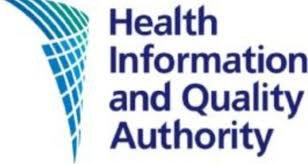To achieve this, the Authority has recommended that a review of the Health Information and Patient Safety (HIPS) Bill be considered in relation to research ethics committees (RECs).
HIQA is expected to take the role of supervisory body of RECs in relation to clinical trials of investigational products (CTIMPs) as required by new EU regulations and under the Health Information and Patient Safety (HIPS) Bill.
According to a letter from HIQA CEO Mr Phelim Quinn, sent to Secretary General of the Department of Health Mr Jim Breslin, seen by <strong><em>MI</em></strong> through Freedom of Information legislation, consideration should be given to expanding the proposed new national committee for CTIMPs to include a remit for multi-site ‘other’ human health research, instead of the structure of several institution-based committees.
It is proposed that the new national committee will have four panels, with each panel meeting regularly to allow for compliance with the tight timelines in the new EU regulation.
“Although more information is needed, at this time HIQA is of the opinion that the new national ethics committee could also be expanded appropriately to manage clinical investigations of medical devices and research proposals involving ionising radiation,” according to Mr Quinn.
“There would be many advantages to having one such system, with many of the stakeholders being involved across all research fields. It would ensure as much consistency to the entire system as possible, and if organised and managed appropriately, should improve the area of human health research for all in Ireland and significantly increase the amount of research conducted here.”
In his letter, Mr Quinn points out that HIQA has so far been working with two separate groups within the Department on the two main pieces of legislation: The Medicine Unit in relation to CTIMPs, and the International and Research and Policy Division in relation to the HIPS Bill. “At this time, there are two very different models proposed for the organisation of the research ethics committees involved, and two likely very different roles for HIQA as the supervisory body of those RECs,” according to the letter.
Part 3 of the General Scheme of the HIPS Bill, published in November 2015, outlined a model involving institution-based RECs, which may or may not apply to HIQA for approval.
A significant aspect of this part of the Bill is the provision for a “single opinion”, ie, a mechanism for researchers proposing to undertake multi-site research to apply to an approved REC, which will be able to provide a decision that will be valid for the State, or part of the State.
The current situation is that researchers have to apply to the REC of each site involved in multi-site research proposals, which is a very complicated and lengthy process.
The Oireachtas Health Committee has published a report of its pre-legislation scrutiny of the Bill, and it raises a recommendation and many issues with the research ethics section.
Mr Quinn said expanding the proposed national committee for CTIMPS would ensure that the main key benefit of Part 3 of the Bill (the ‘single opinion’) would be covered by the new national committee, while the new model could also potentially solve many issues listed in the Oireachtas Health Committee’s report.
Speaking to <strong><em>MI</em></strong>, Mr Quinn said that the Department of Health has responded positively to the proposals.













Leave a Reply
You must be logged in to post a comment.